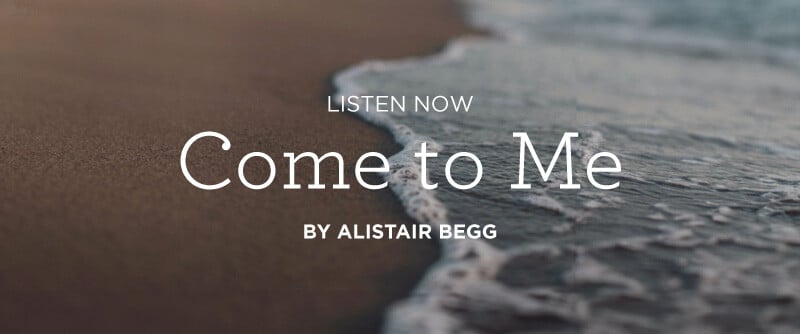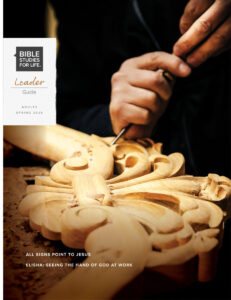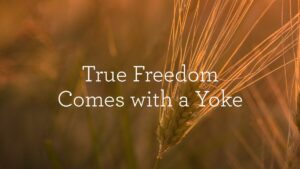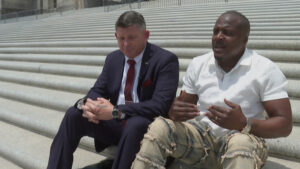True Freedom Comes with a Yoke
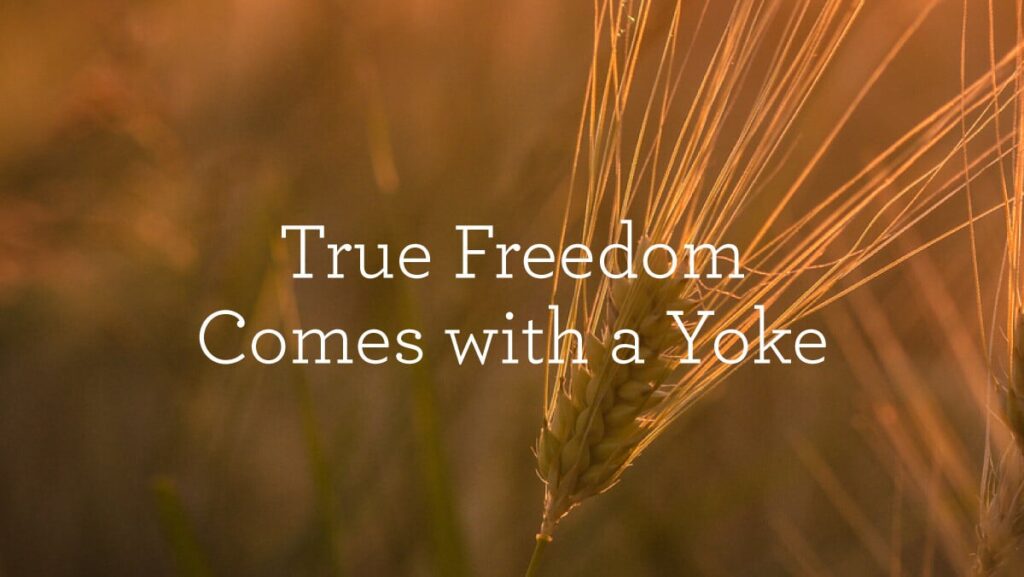
The notion of self-defined morality has grow to be entrenched in modern Western tradition. The world typically invitations us to freedom on our personal phrases, and it has peddled that concept in all places from Supreme Courtroom choices to viral Disney lyrics (“No proper, no mistaken, no guidelines for me; I’m free! Let it go!”)
In opposition to this backdrop, the invitation that Jesus makes in Matthew 11:28–29 is unusual. He begins promisingly: “Come to me, all who labor and are heavy laden, and I provides you with relaxation.” Then it’s nearly as if—to fashionable sensibilities, at the very least—He goes awry: “Take my yoke upon you.”
How can a yoke provide relaxation? Jesus, in any case, is the one who casts off the yokes of slavery and oppression, of obligations and burdens set upon us by others—isn’t He?
However the Bible provides a unique, deeper, extra wondrous story about freedom and its which means.
The That means of the Yoke
A yoke is a wood body positioned throughout the shoulders to distribute the load of a burden. It’s a image of heavy labor most readily related to animals, although human laborers even have used them—significantly slaves, whose social place might be summed up metaphorically by the phrase “below a yoke” (1 Tim. 6:1; see additionally Isa. 10:27; 58:6).
Jesus preached to individuals who have been below the authority of scribes and Pharisees. As He says in one other place, these leaders “tie up heavy burdens, exhausting to bear, and lay them on folks’s shoulders” (Matt. 23:4). The yoke serves as a metaphor for the man-made non secular obligations laid on the folks, which Jesus characterised as a form of slavery.
But Jesus doesn’t invite folks to a life and not using a yoke. As an alternative, He says, “Take my yoke upon you,” including, “Be taught from me, for I’m mild and lowly in coronary heart, and you will see that relaxation on your souls. For my yoke is simple, and my burden is mild” (Matt. 11:29–30). In different phrases, the yoke which Jesus lays on His followers doesn’t chafe. It doesn’t burden. It doesn’t oppress. And but it is a yoke.
True freedom can solely be understood with regards to these phrases: “Take my yoke upon you.”
“Should you abide in my phrase,” Jesus stated elsewhere, “you might be actually my disciples, and you’ll know the reality, and the reality will set you free” (John 8:31–32). Obedience to the Phrase of God, He says, will free us. On this, He’s echoing what the Previous Testomony Scriptures had already revealed—that’s, true freedom comes not by self-made doctrines however by obedience to God:
I’ll preserve your legislation frequently,
perpetually and ever,
and I shall stroll in a large place,
for I’ve sought your precepts. (Ps. 119:44–45)
Our Illusory Freedoms
To this somebody might object, “However I’m not below the authority of scribes and Pharisees! I’ve no yoke in any respect. Why ought to I take one from Jesus?”
The apostle Peter warns us of false lecturers who inform folks they will reside and not using a yoke—that they will reside how they need and do what makes them blissful: “They promise them freedom, however they themselves are slaves of corruption.” If these false lecturers spurn the foundations laid on them from outdoors, in what sense are they slaves? Peter tells us: “For no matter overcomes an individual, to that he’s enslaved” (2 Peter 2:19).
That is the precept summed up so memorably by Bob Dylan:
You’re gonna must serve any individual.
Effectively, it could be the satan, or it could be the Lord,
However you’re gonna must serve any individual.
No matter is the epicenter of an individual’s life, the underside line, the factor they cling to when the whole lot hits the fan, that’s what has mastered an individual. The notion of freedom as an absence of all restriction is an phantasm. It’s only slavery in a convincing masks.
The technology coming of age in America has grown up with the message that they need to “let it go,” that they need to be free to find out their very own fact, that there isn’t any one in cost, nobody who can choose them. And what has been the consequence? Based on one survey, they
report the least constructive outlook and the very best prevalence of psychological sickness of any technology. … This pessimism is fueled by rising world unrest, wars and disruptions, monetary crises, and academic interruptions as a result of COVID-19 pandemic. Emotions of “local weather nervousness” are additionally broadly reported.
That’s not an image of freedom. It’s a painful, heavy yoke.
The Paradox of Biblical Freedom
True freedom can solely be understood with regards to these phrases: “Take my yoke upon you.”
In Jesus, we don’t have the suitable to behave nevertheless we would like. We don’t have the suitable to consider no matter we would like. We’re not free from duty to God and to others. No, true freedom is discovered within the good obligations that Christ lays upon us—a burden that’s not oppressive however, within the mild of redemption and the ability that the Holy Spirit provides us to obey, is simple and light-weight.
To be myself, I’ve to disclaim myself. To be free, I’ve to surrender my freedom. To reside, I’ve to die to myself. To search out myself, I’ve to lose myself.
Many will perceive this paradox from marital experiences. When love drives an individual to make a dedication, they willingly and fortunately submit themselves to the obligations that make all of the richness of loyal love between a person and a lady potential. There’s a freedom that’s solely recognized within the belief that two folks really feel after they have made solemn guarantees to 1 one other.
Jesus Himself gave up His freedom to set us free from slavery to sin and from the simply judgment of God. The Everlasting Son humbled Himself by taking the type of a slave, going even to the purpose of demise (Phil. 2:6–8), in order that He may pay the penalty for sin and invite us into the household of God free from guilt and the jail of self-centered meaninglessness.
The liberty that Jesus invitations us to is paradoxical. To be myself, I’ve to disclaim myself. To be free, I’ve to surrender my freedom. To reside, I’ve to die to myself. To search out myself, I’ve to lose myself. George Matheson captured this effectively in his hymn:
Make me a captive, Lord,
After which I shall be free.
Pressure me to render up my sword,
And I shall conqueror be.
I sink in life’s alarms
When on my own I stand;
Imprison me inside Thine arms,
And robust shall be my hand.
As you navigate the complexities of life, embracing the yoke of Christ provides a path to true freedom and relaxation, grounded in His love and fact. Take a second, then, to mirror on the yoke you might be carrying.
This text was tailored from the sermon “Obligation” by Alistair Begg.

